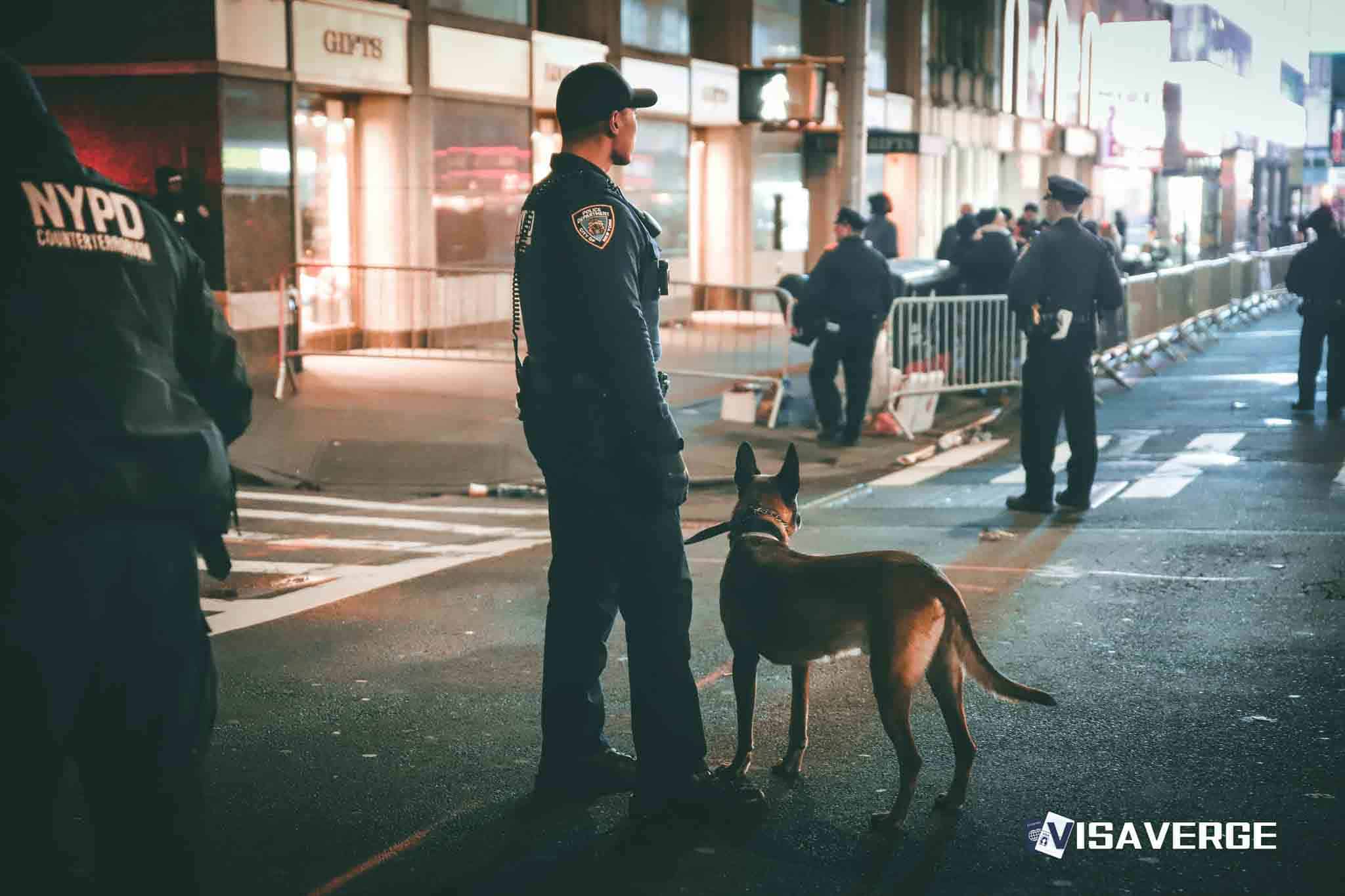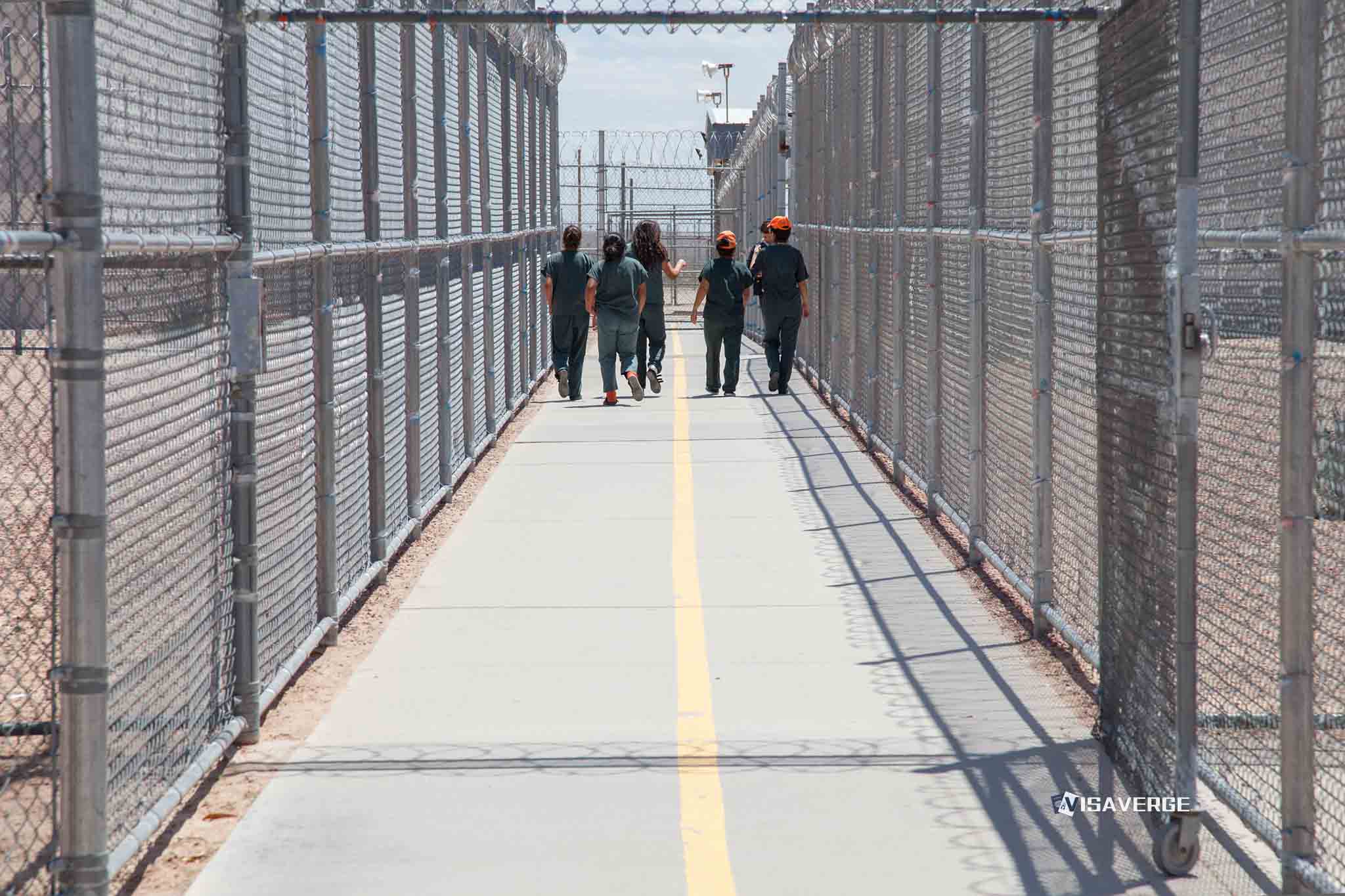Key Takeaways
• Nassau County’s 287(g) agreement deputizes 10 detectives to enforce federal immigration laws starting February 2025.
• NYCLU and immigrant groups filed a June 2025 lawsuit challenging the legality and civil rights risks of the agreement.
• The lawsuit could set a precedent halting ICE-local police agreements across New York, impacting immigrant community relations.
On June 25, 2025, a major legal battle began on Long Island when the New York Civil Liberties Union (NYCLU), along with the Diocese of Long Island and several immigrant advocacy groups, filed a lawsuit against Nassau County. The lawsuit challenges the county’s decision to partner with U.S. Immigration and Customs Enforcement (ICE) through a 287(g) agreement. This partnership allows local police detectives to act as federal immigration officers, giving them the power to arrest and detain people suspected of being in the United States 🇺🇸 without legal status.
This case is the first of its kind in New York State to directly challenge the deputization of local police as ICE agents under the 287(g) program. The outcome could have a big impact on how immigration laws are enforced not only in Nassau County but also in other parts of New York State and possibly beyond.

What Is Happening in Nassau County?
The heart of the issue is Nassau County’s decision to let 10 of its detectives work closely with ICE. These detectives have been trained and given the authority to enforce federal immigration laws. This means they can:
- Identify and arrest people they suspect are in the country without legal permission
- Detain those individuals in local jails
- Transfer them to ICE custody for possible deportation
The lawsuit, filed just months after the partnership was announced in February 2025, claims that this agreement breaks New York State laws that are meant to protect immigrants and limit local police involvement in federal immigration enforcement.
Despite the lawsuit, Nassau County Executive Bruce Blakeman has said the county will continue its partnership with ICE. He argues that the agreement is important for public safety, especially when it comes to removing dangerous individuals from the community.
Why Is This Lawsuit Important?
This legal challenge is about more than just one county. It raises big questions about the role of local police in enforcing federal immigration laws. New York State has rules that limit how much local police can help with federal immigration enforcement. These rules are meant to protect immigrant communities from unfair treatment and to make sure people are not targeted because of their race or background.
The NYCLU and other groups behind the lawsuit say that Nassau County’s agreement with ICE:
- Violates state law
- Puts civil rights at risk
- Encourages racial profiling
- Makes immigrant communities afraid to call the police or report crimes
If the court agrees with these arguments, it could stop Nassau County and other counties from making similar agreements with ICE in the future.
Background: What Is the 287(g) Program?
The 287(g) program is a federal initiative that lets local police departments sign agreements with ICE. Under these agreements, local officers get special training and are allowed to enforce certain federal immigration laws. This can include:
- Checking immigration status during routine police stops
- Arresting and detaining people suspected of being in the country without permission
- Helping ICE with deportation efforts
While many police departments across the United States 🇺🇸 have joined the 287(g) program, New York State has mostly stayed away from it. State laws and policies have focused on protecting immigrants and limiting local police involvement in federal immigration matters.
However, in 2025, Nassau County joined a small but growing list of New York counties—including Broome, Niagara, and Rensselaer—that have signed similar agreements with ICE.
Who Are the Key Players?
Several groups and individuals are deeply involved in this issue:
Nassau County Executive Bruce Blakeman
- Supports the ICE partnership
- Says it helps keep the community safe by removing people who may be dangerous
- Has promised to continue the partnership despite the lawsuit
New York Civil Liberties Union (NYCLU)
- Leading the lawsuit
- Argues the agreement is illegal under state law
- Says it harms immigrant communities and encourages racial profiling
Diocese of Long Island and Immigrant Advocacy Groups
- Plaintiffs in the lawsuit
- Represent the interests of immigrant families and communities
- Worry about the impact on trust between police and the community
U.S. Immigration and Customs Enforcement (ICE)
- Federal agency in charge of immigration enforcement
- Supports 287(g) agreements as a way to increase their ability to enforce immigration laws
Local Immigrant Communities and Activists
- Many have protested the partnership
- Fear more detentions, family separations, and less safety for immigrants
- Say the agreement makes people afraid to work with police, even if they are victims or witnesses of crime
How Does the 287(g) Agreement Work in Nassau County?
The process under the 287(g) agreement in Nassau County follows several steps:
- Training and Deputization: ICE trains 10 Nassau County detectives to enforce federal immigration laws.
- Authority Granted: These detectives can now identify, arrest, and detain people suspected of being in the United States 🇺🇸 without legal status.
- Immigration Arrests: Detectives can make immigration-related arrests during regular police work, such as traffic stops or investigations.
- Detention and Transfer: People arrested may be held in local jails and then handed over to ICE for possible deportation.
- Legal Oversight: The agreement is supposed to follow both federal and state laws, but the lawsuit claims it breaks New York State law.
For more information on the 287(g) program and how it works, you can visit the official ICE 287(g) Program page.
What Are the Main Arguments on Each Side?
Supporters of the Partnership
- Public Safety: They say the agreement helps remove dangerous people from the community.
- Federal-State Cooperation: Supporters believe local police should help enforce federal laws, including immigration laws.
- Efficiency: They argue that working together with ICE makes law enforcement more effective.
Opponents of the Partnership
- Civil Rights Concerns: Opponents say the agreement leads to racial profiling, where people are targeted because of how they look or where they come from.
- Community Trust: They argue that immigrants will be afraid to report crimes or work with police, making everyone less safe.
- State Law Violations: The lawsuit claims the agreement breaks New York State laws that limit local police involvement in immigration enforcement.
What Does the Lawsuit Say?
The lawsuit, filed by the NYCLU and other groups, makes several key points:
- State Law: New York has laws that limit how much local police can help with federal immigration enforcement. The lawsuit says Nassau County’s agreement with ICE goes against these laws.
- Civil Rights: The agreement puts people at risk of being unfairly targeted or arrested because of their race or background.
- Community Harm: The lawsuit argues that the partnership makes immigrant communities afraid, which can lead to less cooperation with police and more crime going unreported.
As reported by VisaVerge.com, this lawsuit is being closely watched because it could set a legal precedent for other counties in New York and possibly other states.
What Are the Practical Effects for Immigrants and the Community?
For many immigrants living in Nassau County and across Long Island, the partnership with ICE has real-life consequences:
- Fear of Arrest: Even routine encounters with police, like traffic stops, can now lead to questions about immigration status and possible detention.
- Family Separation: If someone is arrested and handed over to ICE, they may be separated from their family, sometimes for long periods or permanently.
- Less Trust in Police: Immigrants may be less likely to call the police if they are victims or witnesses of crime, making the whole community less safe.
- Community Tension: The partnership can create tension between immigrant communities and law enforcement, making it harder for police to do their jobs.
How Does This Affect Law Enforcement?
Police officers in Nassau County now have to balance their regular duties with new responsibilities related to immigration enforcement. This can create challenges:
- Training Needs: Officers need special training to enforce federal immigration laws, which can take time and resources.
- Legal Risks: If the agreement is found to break state law, officers and the county could face lawsuits or other legal problems.
- Community Relations: Police may find it harder to build trust with immigrant communities, which can make it more difficult to solve crimes and keep neighborhoods safe.
What Are the Broader Policy Implications?
The outcome of this lawsuit could have wide-reaching effects:
- Legal Precedent: If the court rules against Nassau County, it could stop other counties in New York from making similar agreements with ICE.
- State vs. Federal Power: The case highlights the ongoing tension between state laws that protect immigrants and federal efforts to enforce immigration laws.
- Future Partnerships: Other counties in New York and possibly other states will be watching to see what happens. The decision could influence whether they pursue similar partnerships with ICE.
What Happens Next?
The legal process is just beginning. Here’s what to expect:
- Court Hearings: The court will review the lawsuit and decide whether Nassau County’s agreement with ICE is legal under New York State law.
- Possible Appeals: No matter what the court decides, the losing side may appeal, leading to a longer legal battle.
- Ongoing Protests and Advocacy: Immigrant rights groups and community members are likely to continue protesting and speaking out, hoping to influence public opinion and political leaders.
- Policy Changes: Depending on the outcome, state lawmakers may consider new laws to clarify or strengthen the rules about local police involvement in immigration enforcement.
Resources for Affected Individuals
If you or someone you know is affected by the 287(g) agreement or has questions about immigration enforcement in Nassau County or Long Island, here are some resources:
- New York Civil Liberties Union (NYCLU): Offers legal support and information about the lawsuit and immigrant rights. NYCLU website
- U.S. Immigration and Customs Enforcement (ICE): For information about the 287(g) program and immigration enforcement. ICE 287(g) Program
- Nassau County Executive Office: For official statements and updates on county policies.
- Diocese of Long Island: Provides support and advocacy for immigrant families.
Conclusion: What Should Residents Do Now?
The lawsuit against Nassau County police for their partnership with ICE is a major development for Long Island and all of New York State. It raises important questions about the balance between public safety and civil rights, the role of local police in immigration enforcement, and the future of immigrant communities in the region.
Residents, especially those in immigrant communities, should stay informed about the progress of the lawsuit and know their rights when interacting with law enforcement. Community groups and legal organizations like the NYCLU can provide guidance and support.
For those seeking more information on immigration enforcement and their rights, the official ICE 287(g) Program page is a helpful resource.
As the legal process unfolds, the outcome will shape not only the future of immigration enforcement on Long Island but also the relationship between local police, federal agencies, and the diverse communities they serve. The situation remains dynamic, and all eyes are on Nassau County as this important case moves forward.
Learn Today
287(g) Program → A federal agreement allowing local police special training to enforce certain immigration laws.
Deputization → Granting local police authority to act as federal immigration officers under 287(g).
ICE → U.S. Immigration and Customs Enforcement, federal agency enforcing immigration laws.
Racial Profiling → Targeting individuals based on race or ethnicity rather than lawful suspicion.
Detention → Holding individuals in custody, often pending immigration or legal proceedings.
This Article in a Nutshell
A historic lawsuit challenges Nassau County’s 287(g) partnership with ICE, questioning local police’s power to enforce immigration laws and the impact on immigrant rights and community safety.
— By VisaVerge.com








